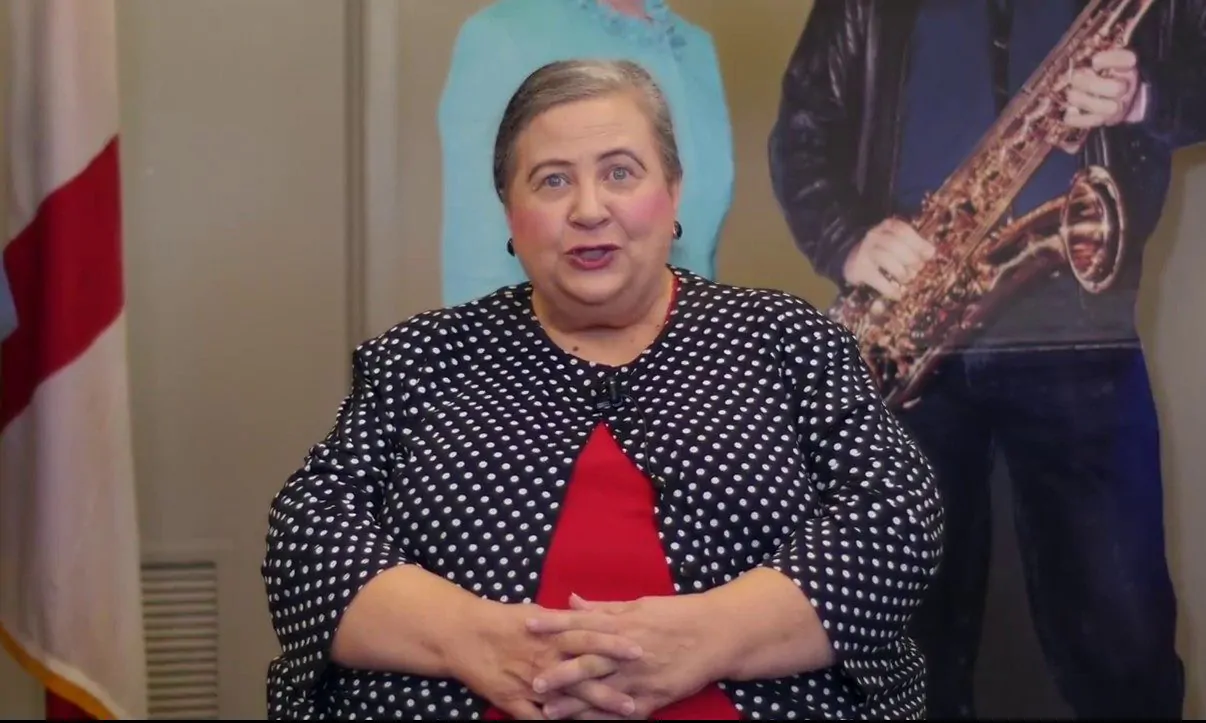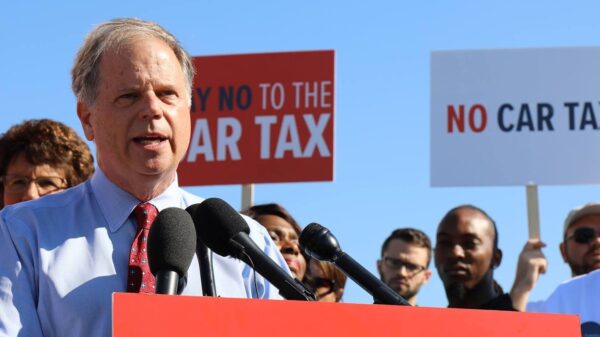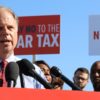Monday, Democratic National Committee Chairman Tom Perez said that the goal of recent efforts by the DNC “are achieving compliance with our Charter and Bylaws.”
“One of my major goals as Chair of the DNC has been to invest in, partner with, and strengthen our state parties — a true 50 state strategy,” Perez wrote. “Throughout my tenure, we have worked tirelessly with state parties to implement this vision and partnership. We have made unprecedented financial investments in state parties, including monthly baseline investments of $10,000 per state. In return, state parties agreed in 2017 to develop a strategic plan for sustained success and to take necessary measures to build an effectively functioning party infrastructure. Regrettably, Alabama has fallen far short of meeting its basic obligations to develop an effective strategic plan and build the necessary infrastructure for success. The ADP has chronically underperformed in virtually every aspect of operation.”
Perez wrote this letter in response to a letter from Jefferson County Chairman Richard Mauk.
“As Chair of the Jefferson County Democratic Party, I recently wrote DNC Chair Tom Perez to ask the status and background of the two challenges facing the Alabama Democratic Party,” Mauk said.
The Jefferson County Democratic Party is the largest county Democratic Party and is one bright spot in what has been a dismal performance for Democrats in Alabama. Barack H. Obama (D) won Jefferson County in 2008 and 2012 and Hillary Clinton took the county, by far the state’s largest, in 2016 even though Donald Trump won the state of Alabama with over 62 percent of the vote. Tuscaloosa Mayor Walter “Walt” Maddox (D) carried Jefferson County in the 2018 gubernatorial election, even the Gov. Kay Ivey received over 59 percent of the statewide vote.
“I have received your recent letter regarding the Alabama Democratic Party (ADP), their leadership elections, and convention credentials status,” Perez told Mauk. “As you note in your letter, the election of the state party Chair, Nancy Worley, and First Vice Chair, Randy Kelley, was challenged over a year ago. You have asked about the status of ADP, the findings of the Democratic National Committee (DNC), and the status of a newer challenge to Alabama’s delegate selection plan.”
In 2018, at the urging of U.S. Senator Doug Jones (D), Montgomery attorney and political strategist Peck Fox challenged Alabama Democratic Party Chairwoman Nancy Worley defeated that challenge, with the backing of Alabama Democratic Conference (ADC) Chair Joe Reed, whose group appoints a large number of the members of the State Democratic Executive Committee (SDEC). Randy Kelley was elected First Vice Chair at that Summer 2018 SDEC meeting. Two challenges were filed with the DNC of those results.
“These challenges alleged, numerous irregularities in the election, including improper notice, the failure to conduct affirmative action, and non-authorized individuals voting in the election,” Perez continued. “For example, one complaint alleged that 190 votes were cast, even though only 142 voting members signed in. Another complaint alleged that the rules and bylaws of the Alabama Democratic Party conflict with the DNC’s Charter and Bylaws and effectively prohibit or severely inhibit important constituencies from participating in the ADP.”
Perez said that the Alabama Democratic Party was given a deadline of November 2018 to respond to the challenges and failed to meet that deadline. Eventually the ADP eventually responded on December 3. The DNC asked the ADP to resolve the issue with the challengers.
“Despite the challengers offering to participate in mediation, the ADP failed to respond or otherwise attempt to resolve the matter,” Perez wrote.
The DNC then appointed a hearing officer who conducted a full-day hearing on February 11, 2019 and then submitted his Report of Findings and Recommendations to the DNC’s Credentials Committee. The hearing officer found that the ADP did not provide Democrats at large with notification about the SDEC summer meeting in a timely manner and that there were a number of irregularities in that election including a roll call vote that Worley is accused of making up and there was insufficient efforts to make sure that only those with credentials voted. Based on the hearing officer’s report, the Credentials Committee concluded that a new election needed to be held and that the ADP rewrite a section of the bylaws that they claim is in conflict with DNC bylaws. Worley and Kelley were provided temporary credentials on the DNC until the new election. The full DNC approved the Credentials Committee actions in February. The ADP was supposed to pass the bylaws change and hold new elections by April.
When nothing happened the DNC Party Affairs team submitted comprehensive proposed bylaws amendments to Worley for consideration on May 31, 2019.
“The proposed changes to the bylaws are straightforward and include: having a strong affirmative action plan to reach Alabama’s diverse Democratic electorate; creating a Diversity Caucus to mirror the success of the Minority Caucus, which represents the African American community in Alabama (and which we have proposed to keep completely intact); and administrative protocols to ensure the party operates in accordance with the Rules,” Perez wrote.
Worley did not respond until June 24, 2019 and then offered a counterproposal which the DNC felt did not comply with the DNC Charter.
“Notably, the ADP has never called an SDEC meeting to redraft its bylaws,” Perez wrote. “The Credentials Committee and DNC officials repeatedly attempted to work with the state party — attempting, for instance, to obtain demographic information to help the party achieve compliance with affirmative action obligations — and to otherwise move the bylaws toward compliance with the DNC’s order so a new election could be held.”
On July 22, Worley submitted final amendments to the bylaws even though there was never a SDEC meeting to draft or approve any bylaws changes. The new amended bylaws still failed to provide for affirmative action and outreach provisions that were required by the DNC. The DNC rejected that plan and revoked Worley and Kelley’s credentials.
RBC rejected the plan because it continued to be in noncompliance with the DNC Charter and Bylaws.
“This means that Alabama’s top party leadership are no longer members of the DNC,” Perez explained. “In addition, the RBC voted unanimously to reject their delegate selection plan until a Chair and Vice Chair have been properly elected under bylaws that comply with the DNC’s requirements.”
Perez said that he was deeply concerned by the extensive delays by the ADP, the failure to adopt compliant bylaws, conduct appropriate outreach, and to hold a fair election.
“We are in the midst of a critically important election cycle,” Perez explained. “Time is of the essence. We have real opportunities to win critical races in Alabama. The party can and must play an important role in these efforts. It is impossible to do so without leadership in place.”
The DNC has halted its monthly payments to the ADP, the only state party not getting DNC funds.
“Our goal at the DNC remains to assist the ADP in achieving compliance with our Charter and Bylaws, as every other state Party Committee does, so that it can conduct a new leadership election,” Perez stated. “As I said earlier, Democrats can win and are winning in Alabama, and I firmly believe we can sustain the success and increase the ranks of Democrats in Alabama. But we need a functional state party, and that starts with appropriate outreach, compliant bylaws, and a fair election.”
Former Congressional candidate Tabitha Isner and former Lt. Governor candidate Dr. Will Boyd are both challenging Worley for chair if and when an actual SDEC meeting is ever held.


















































